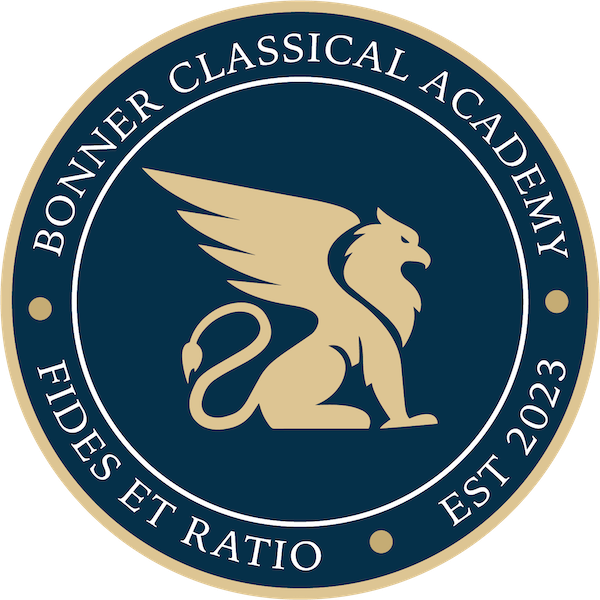Reading Suggestions
Articles
CiRCE Institute, “Principles of Classical Education”
The CiRCE Institute’s article is a great overview of classical school culture and teaching practices. These are terms, methods, and ideas that classical teachers aim for in their classrooms.
Dr. Terrence Moore, “A Classical Education for Modern Times”
Dr. Moore offers an overview of Hillsdale College’s Barney Charter School Initiative. We’re sharing his article for its concision and clarity about what classical education is in contrast to contemporary education.
Dr. Christopher Perrin, “An Introduction to Classical Education for Parents”
Dr. Perrin’s pamphlet offers a history of classical education and orients parents to key terms and distinctions about classical education. From virtue to primary sources, this is our top choice for a quick lesson in what we’re all about.
Dorothy Sayers, “The Lost Tools of Learning”
This work was groundbreaking for classical education. Based on a speech she gave in 1947, Dorothy Sayers challenged the dominant thinking about modern education of her day. Although classical educators today are refining her arguments, her work remains iconic.
Books
Kevin Clark and Ravi Scott Jain, The Liberal Arts Tradition: A Philosophy of Christian Classical Education.
This book provides an excellent overview of the liberal arts tradition, also known as the trivium and quadrivium. It’s a robust read, but theologically and philosophically rich.
Matthew Crawford, Shop Class as Soulcraft: An Inquiry into the Value of Work.
Matthew Crawford’s book is inspirational as we build the Mechanical Arts curriculum for BCA. Crawford’s book has become a classic for its emphasis on working with your hands and the dignity of manual labor.
Phillip Donnelly, The Lost Seeds of Learning: Grammar, Logic, and Rhetoric as Life-Giving Arts.
Dr. Donnelly questions Dorothy Sayer’s assumption that the trivium offers tools. Instead, he suggests that Grammar, Logic, and Rhetoric are seeds, not tools, and that there is incarnational significance in how we teach and relate to language. This is wonderful book on the theology of the trivium.
Christopher Hall, Common Arts Education: Renewing the Classical Tradition of Training the Hands, Head, and Heart.
Christopher Hall and his book are very influential in our Mechanical Arts curriculum development. Drawing on Hugh of St. Victor and St. Bonaventure, he illuminates the shared tradition of the common—or mechanical—arts, the liberal arts, and the fine arts. The book is a pleasant read with plenty of practical tips, guides, and lists for teaching the Mechanical Arts in your classical school or home school.
C. S. Lewis, The Abolition of Man.
C. S. Lewis reminds us in this short book that we are to conform our souls to reality, rather than conform reality to our wishes. While his book isn’t about education, Lewis’ reflection on objective truth is profoundly important.
Josef Pieper, Leisure as the Basis of Culture.
We’re including Pieper’s short book because it’s helpful in building a school culture of Sabbath rest and schole. In this book, Pieper shows us the profound implications of taking time for leisure, or rest and beauty. In a world that is completely defined by total work, we do well to remember that rest and beauty are part of God’s created order.
